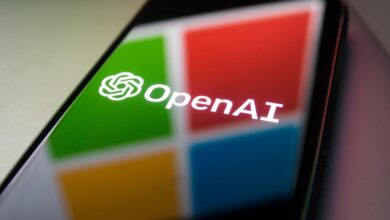How to Understand What ‘AI’ Is Supposed to Mean

Every time artificial intelligence appears in marketing communications, you have to ask what a company means by the term. What branch of AI? How new is something? Is it a necessary extension or something to provide popular flash?
There was an interesting recent announcement from RealPage about a new AI platform titled Lumina AI Platform. It actually offers some good examples of what companies should communicate, and where user companies might ask questions to get better answers.
One interesting point made in the press release was that the company said it took up “the use of AI in the multifamily industry over two decades ago, with more than 50 AI innovations brought to market since 2002.”
This shouldn’t be surprising, as early forms of AI technology go back to the 1950s. Frankly, any vendor that has been around for a significant time in CRE should have implemented AI. Ask them when they started and why they chose what to implement when they did. This gives you a sense of how much they understand what different areas of AI do and if they have appropriately adopted technology to the best uses.
RealPage says that its new product “leverages generative AI (GenAI), machine learning, natural language processing and advanced analytics capabilities across the RealPage portfolio.” This is the point at which you should ask for clear and simple English explanations of what they are claiming to do. But a lot is being thrown together here. Is the “generative AI” meant as a front end, like a query system to pull out operational data? If so, has it restricted the system so it can’t hallucinate, or make things up?
In the RealPage explanation, “Lumina is leveraging GenAI in an omnichannel virtual assistant for prospects and residents, ensuring proactive renter engagement, regardless of time, location, staffing or preferred communication channels.” But none of these people will necessarily know how to make information requests in a way to get what they need. One aspect of generative AI has become the need to learn how to write a prompt that generates the needed answers. For a multifamily operator, it would be critical to test the system against actual residents and prospects to see if they get useful and fact-based answers to what they seek.
The company also writes that the product offers “AI demand optimization using a property’s current and future availability to guide digital ad spend, lead prioritization and improved lead conversion.” But how does the optimization work? What is it optimizing for? Is there any choice and, if so, how does that work?
Another claim is, “Lumina offers an AI assistant to provide expert guidance to property staff, automate workflows, reduce training cycles, minimize invoice processing errors and optimize ESG performance.” Again, how does the automation work? What is being taken out of the process and being done for ESG?
If you don’t know what’s happening inside, you can never be sure how it affects your business. Ask all the questions you need to get things straight before you sign a paper or authorize a payment.



